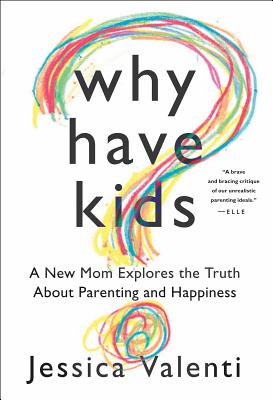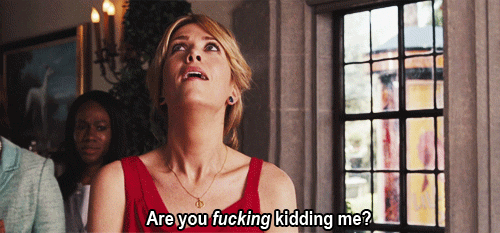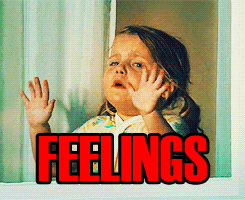I picked up a copy of
Why Have Kids? after reading
The Book Lady's Blog's
excellent review. Feminism, mothering, parenting, and social norms, all wrapped into one well-designed package? Count me in.
"In 2006, The Washington Post coined the term "pre-pregnant" in response to a report from the Centers for Disease Control recommending that all women of childbearing age care for their pre-conception health. The agency wanted all American women--from the time they have their first period until they go through menopause--to take folic acid supplements, not smoke, not 'misuse' alcohol, maintain a healthy weight, refrain from drug use, and avoid 'high risk sexual behavior.' The CDC was asking women to behave as if they were already pregnant even if they had no intention of conceiving in the near--or far--future. For the first time ever, a U.S. government institution was saying what social norms had always hinted at: That all women, regardless of whether or not they have or want children, are simply mothers-in-waiting." (3-4)
So begins Valenti's introduction to
Why Have Kids?, in which she explores the social and cultural norms around parenting--specifically, mothering--in 21-st century America. I have to admit, when I first read that paragraph, I actually had to flip back to the first sentence to confirm that it was, in fact, a CDC recommendation from
2006, because my natural assumption was that this was an out-dated recommendation dating back to the 1960s. Or '50s. Or even '20s. But the 21st century? Do we really still think of women as little more than child-bearing vessels?
Sadly, in an age where British health ministers are recommending similar reproductive health tactics to all women of "childbearing" age; in which we
continue to argue the rights and wrongs of Marissa Meyer's maternity decisions; when
powerful women still can't have it all; and where reproductive rights have become, yet again, a central point in American political debates, it seems that that is, in fact, still the case. Though we may have become more accepting of single parents, divorced parents, children born out of wedlock, etc., the key word there is "more." Everything is relative. As a society, we are still uncomfortable with family structures that do not look like the "normal" family model we have grown up with on TV--and that includes women and couples who choose not to have children as much as it does gay couples who choose to have children.
I'm not a parent myself--at least not yet. I don't know if or when I may be; at the moment, I'm enjoying my 20s as part of a couple, not a threesome+. But I've been married for two years now, and the number of times I've found myself on the receiving end of the "so-when-are-you-having-kids" question is staggering, astounding, and downright irritating. Why is it that society feels it appropriate to ask about my reproductive plans? What's more--why is it that people assume that now that I am married I will instantaneously start planning for children? Can't I just be me--a full-time marketing professional, wife of an amazing man, book reviewer, sailor-in-training, and obsessive book collector--at least for a little while? Isn't that enough?
These questions lay at the heart of Valenti's excellent book on mothering, parenthood, and 21-century ideals, though her arguments go much deeper than my own initial thoughts had taken me. She tackles issues of breastfeeding (To breastfeed or not to breastfeed? More importantly,
why do we care how other people feed their children?); childless couples (Apparently, there are actual support groups for these people, they are so ostracized and misunderstood.); the "myth" that children make us happier (Studies have found that, in fact, the exact opposite is true.); the idea of parenting as a "job" (To work or not to work? See again:
Marissa Meyer.); and so on.
No one person will agree with everything Valenti argues in
Why Have Kids?, but, as
Rebecca at The Book Lady's Blog points out, that is precisely the point. Parenting is tough--whether one chooses to be a parent or not--and no two people will look on it the same way. No matter what decisions we make as individuals, others will disagree with us--and no matter what side of an argument Valenti takes on these issues, others will disagree with her.
But underlying all of this disagreement, Valenti seems to be suggesting that the most crucial thing that we can do, as a nation, is embrace the fact that we will not all agree.
"We need to do away with the idea that there is a "natural" way to parent--whatever way we choose to parent is the natural way... American parents need to support one another..." (167).
Only by agreeing to disagree can we turn our attention to the greater problem: how to ensure that we continue to raise happy, healthy children, without sacrificing the happiness and health of their parents. It takes a village, as they say, but until we can put aside our differences, that village is nothing more than a pipe-dream.
---
You might also like:
---
Thoughts from other bookworms:
---
Why Have Kids? | Jessica Valenti | New Harvest | Hardcover | September 2012 | 178 pages












